Iran Lawmaker Says 'No Good News' From Vienna Talks
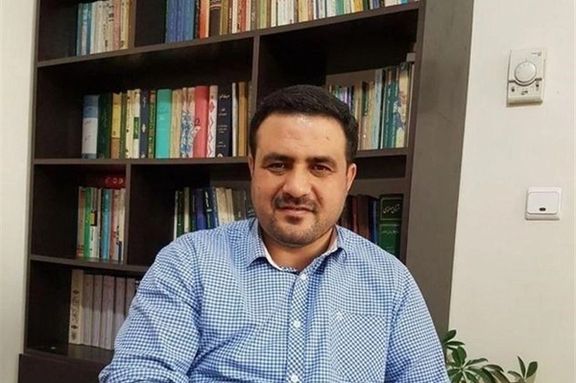
An Iranian lawmaker says there is no good news from the Vienna nuclear talks because technical issues that are obstacles to revive the nuclear deal are not resolved yet.

An Iranian lawmaker says there is no good news from the Vienna nuclear talks because technical issues that are obstacles to revive the nuclear deal are not resolved yet.
Despite numerous reports about Tehran not considering an interim deal with the world powers, Alizadeh said Iran has not yet announced any formal position on whether to approve or reject the plan, which proposed partial steps in sanction removal and halts in the Islamic Republic’s nuclear program.
The suggestion of an interim agreement came first from a European state with the idea focused on releasing Iranian money frozen in Asia. Iran's assets frozen abroad are said to be $50 billion, including $8 billion in South Korea, $3 billion in Japan, and $6 billion in Iraq.
Commenting about the release of Iran's blocked assets, Alizadeh said that with the green light of the Western side and without a media hype, it is happening through Chinese channels instead of the EU-Iran Instrument in Support of Trade Exchanges (INSTEX).
“In other words, the sale of Iranian oil and the return of its money to the country is taking place with no trouble, which can be considered a positive step in motivating the parties to conclude the negotiations”, he said.
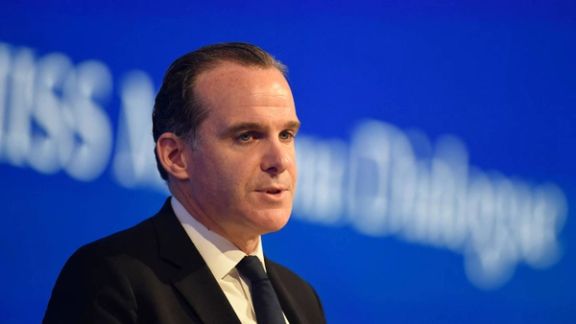
Iran has returned in the Vienna nuclear talks to where it was when the process broke off in June for the Iranian elections, a senior US official said Thursday.
Brett McGurk, US National Security Council Coordinator for the Middle East and North Africa, told the Carnegie Endowment for International Peacein a live webinar that the Biden administration was “not trying to pursue a transformation of this region” and was focused on US interests rather than “maximalist goals”, including “regime change.”
McGurk, who has served under the successive administrations of presidents George Bush, Barak Obama and Donald Trump, identified the prevention of an Iranian nuclear bomb as a core US interest and the “security of Israel” as a “first principle.”
Reiterating Biden officials’ criticism of President Trump over leaving in 2018 the 2105 Iran nuclear deal, the JCPOA (Joint Comprehensive Plan of Action), McGurk said “this problem is not one that we should be having” given the JCPOA “did put a cap on Iran’s nuclear program through 2031.”
McGurk said the Vienna negotiations, which began in April aimed at reviving the JCPOA, were reaching a “culmination point…pretty soon.”
“We’re going to know very soon whether or not it’s possible for the Iranians to return to compliance with the nuclear deal on terms that we and the international community can accept,” he said.
Iran Hit ‘United Front’
McGurk stressed a common approach of world powers taking part in the Vienna talks, suggesting the Biden administration had “over the past year united the P5+1,” a reference to the five permanent members of the UN security council, plus Germany, who all signed the JCPOA and are present in Vienna.
The Iranians had been “surprised by the united front that they have hit,” McGurk said, adding that the talks were basically now…back to where we were at the end of last summer.”
The talks were suspended in June after the Iranian presidential election and the transition to the new administration of President Ebrahim Raisi (Raeesi), who appointed new negotiators claiming they were taking a fresh, and more assertive approach in the talks.
This meant, McGurk explained, that there was a “good chance of a deal” but also “a pretty good chance that there’s not going to be a deal.” He insisted that the US was “prepared for either scenario,” but that while Washington would “perhaps” be interested in an interim agreement its focus remained on securing “full compliance” of Iran with the JCPOA, an aim McGurk said that was shared by all the world powers.
Time, however, the US diplomat stressed, was limited as Iran continued the advances made in its atomic activities begun in 2019, which have included enriching uranium to 60 percent.
“We are now on the verge of a nuclear crisis, because Iran’s program has advanced, even as it has faced tremendous setbacks,” McGurk said, “and it’s getting to the point where the break-out time – where Iran would have enough fissile material to be able to divert material for a weapons program where we could not detect it, or [United Nations] inspectors could not detect it [in time to intervene] – we’re starting to approach that window.”
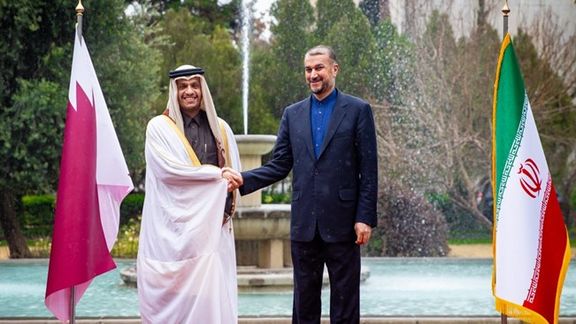
Iran's official news agency Thursday said the visit of Qatari foreign minister to Tehran should not be seen as facilitating direct talks with Washington.
Iranian Foreign Minister Hossein Amir-Abdollahian met his Qatari counterpart Mohammed bin Abdulrahman Al-Thani in Tehran Thursday morning, sparking suggestions in domestic and foreign media that Doha was working for direct US-Iran talks to help revive the 2015 Iran nuclear deal.
In a note headlined "Mistaken Interpretation Of Iran, Qatar Foreign Ministers' Visit," IRNA reported “good and close relations” with Qatar but said “speculation” over “direct talks with the US in Vienna,” where multilateral talks to revive the 2015 deal, had “fueled some misconceptions about the nature of the visit.”
The visit was announced Wednesday, two days after two calls between the two foreign ministers. "Two phone calls can be made when relations are close, developments fast, and the issue at hand important," tweeted Hamidreza Dehghani, Iran’s ambassador to Doha.
The IRNA note, published before the Tehran meeting, reiterated Iran’s stance that the central issue in reviving the 2015 deal, the JCPOA (Joint Comprehensive Plan of Action), was the US need to “return to its commitments” under the agreement, which Washington left in 2018 while imposing ‘maximum pressure’ sanctions.
The note stressed that until this happened a US “presence in the meetings of the Joint Committee [of remaining JCPOA members]” in Vienna would be “irrelevant,” and that “the key to solving the problem is [the US] returning to all commitments under the JCPOA, not mediation.”
IRNA went on to note both that some politicians in Iran had been arguing for direct US talks and that Qatari officials had not refuted speculation about mediation as "they want to gain credit" from posing as a mediator. With the meeting between Amir-Abdollahian and al-Thani focused on “regional” issues, IRNA observed, "Qatar's capabilities and record in this regard [mediation] do not confirm such an interpretation."
Among such regional issues are rising tensions over the United Arab Emirates role in the Yemen war, and recent Ansar Allah, or Houthi, missile attacks in the UAE.
But Qatar's emir Sheikh Tamim bin Hamad al-Thani is due to meet US President Joe Biden January 31, where restoring the JCPOA is likely to be discussed. Doha has called on both the US and Iran to respect the terms of the deal.
While Tehran has refused direct talks with the US since Washington left the JCPOA, and has insisted that the Vienna negotiations, which began in April, should remain formally within JCPOA structures with the US taking part indirectly, there have been recent signs that with Vienna process at a crucial point Tehran is reconsidering.
Talks remain controversial
Amir-Abdollahian said Monday that the possibility of bilateral talks with the US would not be "overlooked" if a "good deal with strong guarantees" was within reach. Ali Shamkhani, Secretary of Iran's Supreme National Security Council (SNSC), also raised the possibility in a tweet Tuesday. President Ebrahim Raisi in a TV interview Tuesday also appeared open, if hesitant, over the prospect.
But such talks remain controversial. The flagship hardliner newspaper Kayhan Tuesday criticized Amir-Abdollahian and Shamkhani, demanding an explanation.
Abdollah Ganji, chief editor of the principlist Jahan newspaper, has preferred to insist that any talks with the US should be bilateral and not within JCPOA structures.
While Raisi has continued approach of former president Hassan Rouhani over US participation in Vienna, some Iranian reformists have been recently pushed for direct US talks as the best way to have ‘maximum pressure’ sanctions lifted.
Ali Khamenei, the supreme leader, who endorsed two years of talks with the US leading up to the JCPOA in 2015 and earlier over Afghanistan and Iran, said in January that “negotiations with the enemy at a certain juncture does not necessarily mean surrender."
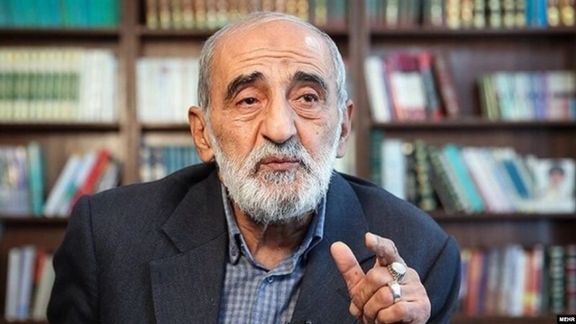
Nearly all 40 newspapers in Tehran carried welcoming reports about the idea of direct talks with the United States on Wednesday, that has grabbed the headlines.
Foreign Minister Hossein Amir-Abodllahian first hinted at the possibility on Monday and Supreme Council of National Security chief Ali Shamkhani echoed the same idea on Tuesday.
The exceptions were the hardliner Kayhan which is linked to Supreme Leader Ali Khamenei's office and ultraconservative Vatan Emrooz, a Paydari Party mouthpiece, which is the dominant hardliner group in the parliament.
The kayhan harshly criticized Amir-Abodollahian and Shamkhani for their support for direct talks with the Washington.
Last week, Kayhan and IRGC-linked Tasnim news agency had lashed out at Amir-Abdollahian for his support for a balanced foreign policy which meant having ties with the United States as well as Russia and China.
Vatan Emrooz totally had ignored the development while IRGC daily Javan avoided criticizing the foreign minister and the change was noticed by many social media activists in Iran.
The idea of direct talks was most recently brought up by US Special Envoy for Iran Robert Malley who responded to the Iranian side's call for a guarantee that future US governments will not pull out of a nuclear deal with Iran. Malley suggested that major US companies can be prompted to invest in Iran and in that case, they will prevent a US pull out from a new agreement.
Nonetheless, it was Khamenei himself who first mentioned the possibility of direct talks with the United States in a January 9 speech in which he showed the first public sign of his readiness for a compromise on the nuclear deal. His move was similar to his "heroic flexibility" speech in 2013 when he first agreed to negotiations with the United States. He said on January 9, "Negotiations with the enemy at a certain juncture does not necessarily mean surrender".
In a report that was published by Iran Diplomacy website on Wednesday, conservative commentator Jalal Khoshchehreh told the website that softening Iran's positions on holding direct talks with America was a change that followed President Ebrahim Raisi's visit to Moscow last week. Raisi himself, however, implied on live TV Tuesday night that direct talks are possible only if the United States lifts the sanctions on Iran.
As a result, Iranian newspapers came out Wednesday morning with three different messages about Tehran's approach to direct talks with Washington: The good, the bad and the ugly: Khamenei and Amir Abdollahian approving of direct talks with some hesitation, Raisi pending direct talks on the lifting of the sanctions, and Kayhan absolutely ruling out direct negotiations under any circumstances.
In a prominent headline on its frontpage on Wednesday the Kayhan said that "Direct talks is the enemy's trick to evade lifting the sanctions. Hossein Shariatmadari, the daily's firebrand editor wrote in his "brotherly advice to the foreign minister and security chief" that although they might be looking for water, they are misled to drown themselves in a mirage. Shariatmadari said he is worried that support for direct talks with the United States might disappoint the regime's devoted zealot supporters.
The anti-US editor then resorted to a piece of poetry from Iran's great poet Hafiz and quoted the 14th century mystic as saying: "This country is far from water, beware of the demons who lead you to mirage."
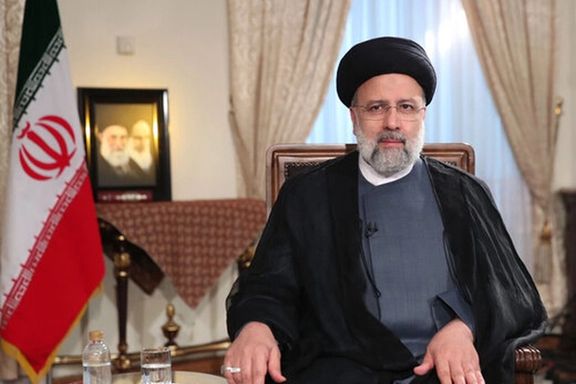
A Press TV misinterpretation unleashed a media storm Tuesday after President Ebrahim Raisi gave a vague reply in a TV interview to a query on direct US talks.
After noting "occasional whispers" over the United States seeking bilateral contact, Raisi, during an hour-long interview broadcast live by state television, was asked for Iran’s response should such a request be made “in a serious manner.”
Such an approach would not be unprecedented, including during times before he took office, Raisi replied. “[Officials of] many countries who meet with us here sometimes bear messages from Americans saying they want to talk with us directly…So far there have been no [direct] negotiations with the Americans. But we have announced before, and say it again, that there will be room, fully, for any kind of agreement, if the other sides are prepared to lift the unjust sanctions against us.”
The interviewer did not press the president over recent remarks by Foreign Minister Hossein Amir-Abdollahian and Ali Shamkhani, Secretary of the Supreme National Security Council, envisaging direct talks. Amir-Abdollahian said Monday that the possibility would not be "overlooked" if a "good deal with strong guarantees" was within reach as part of the Vienna talks seeking to revive the 2015 nuclear agreement, the JCPOA (Joint Comprehensive Plan of Action).
Apparently following an account of Raisi’s interview on the Press TV English-language website, however, a slew of international reports and social media posts claimed the president had made direct talks conditional on the US first lifting sanctions. These apparently prompted Press TV to amend its account of the interview.
Speculation, or tactic?
The confusion was not just abroad. Abdollah Ganji, chief editor of Javan newspaper affiliated with IRGC, tweeted Tuesday that he did not now know whether direct talks with the US were “speculation or a tactic.”
Ganji insisted that Tehran should maintain its stance that Washington should not re-enter the formal Vienna process until it rejoined the JCPOA by withdrawing sanctions introduced since 2018 in violation of the pact. “If it's been decided [that talks with the US are] to happen, [they] should be bilateral…The US presence…[in the formal Vienna talks] means its return to the JCPOA without offering a guarantee to abide by its commitments to it.”
In another tweet Tuesday, Ganji said direct negotiation was a "possibility" that the nezam (‘system’) had always considered possible whenever a positive outcome was expected, “when it was not just talking for the sake of talking." The JCPOA was proceeded by two years of direct US-Iran talks, but Tehran ruled out such bilateral contact when the US left the JCPOA in 2018.
Nezam (system) is a word often used by Iranian politicians to refer to the Supreme Leader Ali Khamenei when mentioning him directly is to be avoided.
Javan newspaper Tuesday splashed a front-page headline, with Amir-Abdollahian's photo: "Direct Talks On Condition of Good Agreement with Strong Guarantees." Many hardliners were skeptical over the JCPOA, or opposed it, and were critical of what they said was the over-reliance on outreach to western Europe and the US of the previous administration of President Hassan Rouhani.

There are more than 30,000 idle production plants across Iran that are completely closed or semi-active due to economic and legal issues.
The Iranian president’s deputy for rural development said on Tuesday that many of these units cannot be revived but some 20 to 25 percent can be brought back to production and the supply chain.
Amir-Hossein Madani added that most of these units are from sectors of mining, agriculture and small industries.
He said the priority of the current administration is to activate the stagnant sectors in rural areas.
Madani pointed out that some of these units were closed or underperforming due to the consequences of sanctions, but many of them are not operational because of other financial and legal problems.
According to reports by Iran’s Ministry of Industry, Mine and Trade, during the last Iranian year (from March 20, 2020 to 2021) over 1,500 inactive units returned to the production cycle through various methods such as providing liquidity and facilities, modifications in the production line and management changes.
Iran suffers from a lack of investments and a centralized economy. Pundits say Iran’s economy is at its most dangerous historical pointin the past four decades with rising inflation, lack of liquidity and international sanctions that would not allow Western companies to have any business dealings with Iran.